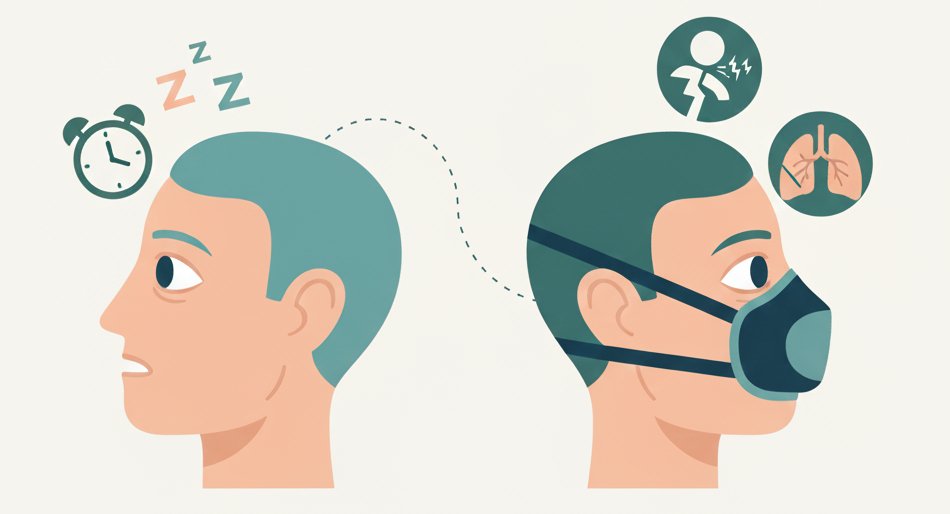If you’ve been waking up tired even after a “full night’s sleep,” you might be asking yourself: Do I have insomnia, or could it be something else like sleep apnea? Many people confuse the two, but they are very different conditions — and knowing the difference is key to getting the proper treatment.
What Is Insomnia?
Insomnia is one of the most common sleep disorders. It usually means you:
- Have trouble falling asleep
- Wake up several times during the night
- Get up too early and can’t fall back asleep
- Feel tired even though you spent enough hours in bed
Sometimes, insomnia is short-term, triggered by stress or lifestyle changes. But if it lasts more than a few weeks, it may be a chronic condition that affects both your mental and physical health.
What Is Sleep Apnea?
Sleep apnea is very different from insomnia. With obstructive sleep apnea (OSA), your airway gets blocked while you sleep. This causes snoring, pauses in breathing, or choking sounds — often noticed more by your partner than by you.
People with sleep apnea may sleep for 7–8 hours, but still wake up feeling exhausted because their body never gets proper rest. Over time, untreated sleep apnea increases the risk of diabetes, hypertension, heart disease, and stroke.
Key Differences Patients Notice
Here’s how you can tell them apart in simple terms:
- Insomnia: You can’t fall asleep or stay asleep.
- Sleep Apnea: You sleep, but your breathing keeps stopping, so your sleep quality is poor.
If you snore loudly, wake up with a dry mouth or headache, or feel very sleepy during the day, that’s more likely sleep apnea than insomnia.
The Health Risks You Shouldn’t Ignore
Both conditions may seem like “just sleep problems,” but they can affect your whole body:
- Poor concentration, memory issues, and daytime fatigue
- Higher risk of accidents at work or while driving
- Long-term damage to your heart, blood vessels, and metabolism
If you already have diabetes, high blood pressure, or obesity, ignoring these sleep issues can make them much worse.
How Diagnosis Works
The first step is always to speak with a Sleep Specialist. You may need:
- A sleep study (polysomnography) to monitor breathing, oxygen levels, and brain activity
- A detailed medical history and symptom check
- Possible overnight observation at a Sleep Clinic
👉 You can read more about why visiting a specialist matters in our blog: Sleep Clinics Near You: Why Visiting a Specialist Matters
Treatment Paths
The good news is that both insomnia and sleep apnea are treatable.
- Insomnia treatments may include better sleep habits, stress management, and, in some cases, short-term medication.
- Sleep apnea treatments range from weight management and lifestyle changes to medical solutions like CPAP therapy that keep your airway open during sleep.
The right treatment depends on a proper diagnosis, which is why consulting a specialist is so important.
When to Seek Help
If snoring, frequent waking, or constant tiredness are affecting your life, don’t ignore the signs. Many patients assume poor sleep is “normal,” but it’s often the body’s way of asking for help.
📞 To book a consultation with Dr. Nalini Nagalla, Pulmonologist and Sleep Specialist in Hyderabad, visit our Contact Page or call us directly for an appointment.
Conclusion
Sleep is the foundation of good health. Whether it’s insomnia keeping you awake or sleep apnea silently disturbing your nights, the proper diagnosis can transform your energy, focus, and overall well-being.
Take the first step today – don’t just live with tiredness, find out the cause and treat it.

